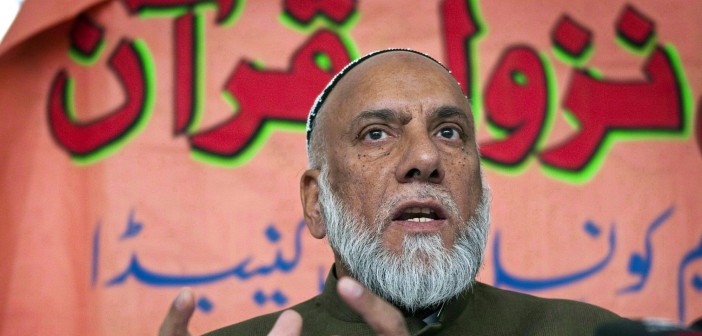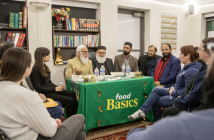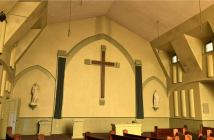Senate report on terrorism offers real solutions to real threat
An author of the Senate report on terrorism explains how its critics misunderstand it and what’s behind its recommendations.
Toronto Star | July 19, 2015

JEFF MCINTOSH / THE CANADIAN PRESS
Imam Syed Soharwardy who leads 13 mosques in Canada warned the Standing Senate Committee on National Security and Defence that “there are people preaching open intolerance in this country.”
Contrary to concerns that have been raised about its recent report, Countering the Terrorist Threat in Canada, the Standing Senate Committee on National Security and Defence did not propose that government intervene to certify or establish a registry of Islamic or other clerics.
The carefully crafted recommendation asks that “the federal government work with the provinces and the Muslim communities to investigate the options that are available for the training and certification of imams in Canada.”
This is a very important distinction because the recommendation is made in response to testimony from members of the Muslim community as well as experts who confirmed that radicalization begins with person to person or person to group contact.
The witnesses who appeared before the committee over the past nine months continuously brought up the fact that radicalizing messages mixed with religious ideology was being advocated by some foreign-trained imams in Canada.
Professor Salim Mansur told the committee, “Radicalization occurs among Muslim youth when identity politics facilitates their indoctrination into jihadi politics by Islamist preachers and activists in the community” and stated clearly that “if you are not prepared to tackle radicalization and those who radicalize our youth, we will always be playing catch-up.”
Homa Arjomand, a former Iranian refugee who led the international campaign against Sharia law in Ontario, testified that “Under the notion of freedom of religion, the state has legally funded religious schools and centres and placed the children under religious dogma and tradition. With money pouring from Saudi Arabia, Iran and other states, and with [mullahs]and imams being imported to Canada, the result is very obvious. The state has paved the path for more segregation, isolation and discrimination.”
Imam Syed Soharwardy who leads 13 mosques in Canada warned that “there are people preaching open intolerance in this country.” He went on to state that it is this “intolerance ideology that makes a person become a potential recruit for the terrorist organization? This ideology opens the door for recruitment.”
Another member of the Muslim community, Michelle Waldron, whose family has been directly affected by radicalization warned Canadians that foreign-trained imams are “blurring the line between traditional Islam and their politically motivated ideology, which opens the door to violence and strife.” She told the committee that her son Luqman Abdunnur, who was reportedly under national security investigation was radicalized at a mosque in Ottawa, and arrested three days after the October 2014 Parliament Hill attack. Waldron called on the committee to “create a certification or licensing standard for clergy and religious leaders in Canada.”
While the committee did not go this far, it felt the suggestion was worthy of further, open exploration, discussion, and debate.
During the course of our hearings, former Liberal cabinet minister and ex-British Columbia premier Ujjal Dosanjh, himself a victim of terrorism, also urged the committee to consider greater scrutiny of religious institutions.
Muslim witnesses were among those warning about the hazards posed by religious/political interpretations of jihad. Several witnesses pointed out that this doctrine has served as the impetus and justification for today’s Islamist terrorism. There is reason to believe that perpetrators were persuaded that such thinking about “jihad” justified the killing of a uniformed Canadian Armed Forces’ warrant officer in Quebec, the murder of a National War Memorial sentry in Ottawa, as well as assorted Islamist fundamentalist plots and hostilities in Canada and around the world.
Canada is not alone is discussing the options to prevent Islamist radicalization. Some European countries have gone further than what our Senate committee contemplated.
Since 2004 the Netherlands passed laws prohibiting foreign imams from practicing there, and today, Belgium, France, Austria and Germany are requiring that Imams be trained and certified within their country. Confirming our concerns, just last week, France announced it had deported 40 foreign-trained imams since 2012 and in Tunisia, where 38 tourists were recently murdered, the government announced that it will close 80 Salafist/Wahabbi mosques. Algeria, which has experienced years of civil war, now has restrictions relating to foreign-trained imams.
We are confident that this recommendation to encourage the Muslim communities to train their religious leaders in Canada, along with the other 24 suggestions in our report, are timely, prudent and necessary responses to the security reality facing all Canadians.
Daniel Lang is senator for Yukon and chair of Standing Senate Committee on National Security and Defence.





